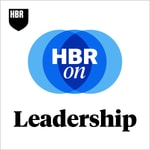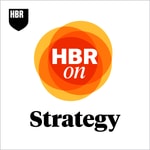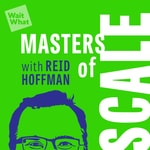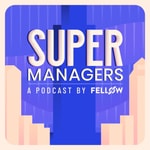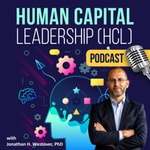People Analytics – Détails, épisodes et analyse
Détails du podcast
Informations techniques et générales issues du flux RSS du podcast.
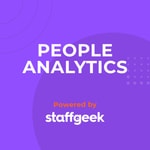
People Analytics
Sean Boyce
Fréquence : 1 épisode/15j. Total Éps: 97
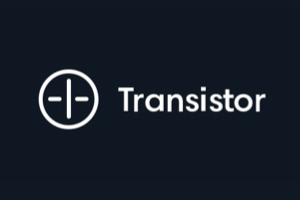
Classements récents
Dernières positions dans les classements Apple Podcasts et Spotify.
Apple Podcasts
🇬🇧 Grande Bretagne - careers
15/07/2025#95🇬🇧 Grande Bretagne - careers
25/11/2024#99🇩🇪 Allemagne - careers
16/10/2024#97🇩🇪 Allemagne - careers
15/10/2024#55🇬🇧 Grande Bretagne - careers
12/09/2024#91🇬🇧 Grande Bretagne - careers
11/09/2024#45
Spotify
Aucun classement récent disponible
Liens partagés entre épisodes et podcasts
Liens présents dans les descriptions d'épisodes et autres podcasts les utilisant également.
See all- https://slack.com/
626 partages
- https://asana.com/
499 partages
- https://hbr.org/
312 partages
- https://www.linkedin.com/in/lindsaypatton/
47 partages
- https://www.linkedin.com/in/bartlow/
32 partages
- https://www.linkedin.com/in/ericarooney/
27 partages
Qualité et score du flux RSS
Évaluation technique de la qualité et de la structure du flux RSS.
See allScore global : 63%
Historique des publications
Répartition mensuelle des publications d'épisodes au fil des années.
Empowering the Workforce: Insights from an HR Leader
Épisode 96
mercredi 13 décembre 2023 • Durée 30:16
Dive into a riveting dialogue with HR Director, Collin Gehl, as we navigate the terrains of workplace safety, self-care, and diversity. Discover how Say Yes to Education shapes a resilient and supportive environment amidst crises and the role of HR in fostering growth and opportunity.
Here are a few of the topics we’ll discuss on this episode of People Analytics:
- Employee support exceeds the punishment.
- Self-care as a personalized strategy.
- Diversity fuels organizational success.
- Addressing trauma in HR practices.
- Communication key in HR development.
Resources:
Connect with Collin Gehl:
Connect with our host, Lindsay Patton:
Quotables:
- 00:45 - We embed self-care in everything that we do. So including our supervision. So we've created policies and procedures that have helped to set up success for our full team. And as part of embedding self-care and everything we do, including supervision, if we've noted a slip in a performance, we're not quick to sort of penalize someone or assume that someone is being lazy.
- 6:30 - I encourage, you know, our staff, you know, whether or not they're here to take actual, take a break, walk away, you go for a walk. And we have about 60% of our staff are school-based. So they are, their offices are in Buffalo Public Schools because they're doing a lot of support for the students in Buffalo. And so, you know, I encourage, you know, those individuals, whatever you need to do in order to sort of take some time away during your day, at least do at least take them 30 minutes.
- 10:41 - We all are committed to the vision of our organization and our missions of our organization, really all about sort of helping to support students in Buffalo to be able to reach their full potential, whatever that looks like. And because we are all committed to that mission, it doesn't matter that we are, you know, that we're different. We all are working towards that mission and we're able to be successful because we have these different perspectives but we all have that same goal. And how we get there may differ, but we all have that same goal. We're all gonna reach it.
- 25:05 - It really fascinates me with these organizations that are so punitive towards their team, you know, where they just, they try to do things based on fear or you know, when someone says, you know, they're, look, they might be looking for another opportunity, they get all upset. And I'm like, why?
- 13:13 - That was a surprise. Someone that I had done a presentation to a class at a local university like five years ago. And this person reached out to me and said, I remember when you gave your presentation, I had, would you mind allowing one of my students to shadow you for a day? And I said, sure, sure. You know, send him in. And he came in, he just love say Yes, he loved the vibe. And he was like, oh, I would love to like stay, like, do you have any openings?
HR Stories from the Heart – Shane Fisher's Journey
Épisode 95
jeudi 7 décembre 2023 • Durée 25:24
Dive into the world of HR with Shane Fisher, Director of Human Resources at Built Brands, as he shares his inspirational journey in employee development and the creation of a dream company culture at Built Brands. Get ready to discover the power of 'giving them pie' and the success stories that define the heart of HR.
Here are a few of the topics we’ll discuss on this episode of People Analytics:
- Shane Fisher's late HR start
- Developing Built's company culture
- Creating the Built Leadership Academy
- Staff empowerment and investment
- Shane's success story in HR
Resources:
Connect with Shane Fisher:
Connect with our host, Lindsay Patton:
Quotables:
- 8:08 - I think I, I wanna build a leadership academy. And she was like, do it. You know, she was just like, do it, it's yours. Go. And so I was like, alright. And so, you know, the Built Leadership and Development Academy came to life.
- 9:15- It's so cool, just in this past course, you know, we had individuals who came back the following week and they were like, I was looking over my team and this person has this leadership style, and this person has this leadership style, and I think if I help them to develop that, then they're gonna be great in this position. And, you know, I almost like turned around and cried. I was like, oh my gosh. You know, it works.
- 14:01 - We realized being a manufacturing company, you know, we have our day shift, we have our swing shift. And so we came to the realization that not everyone's gonna be there at 10 o'clock or one o'clock. So we actually have three courses now. So we have a one o'clock for the day shift, we have a three 30 for the afternoon shift, and then we come in later at like seven or eight at night for our later shifts.
- 22:31 - If you don't have a positive culture, if you don't have people who really want to be here, who believe in the company, then how would those people ever benefit Built, you know, by focusing on them and, and helping them hit those goals and have that happiness and be successful and you know, go and see our product on the shelves and be like, that's what I do. I've made that. That's, that's how we benefit that. That's always got, you know, the best interest of built and the best interest of our team members.
From Music Major to Passionate HR Professional: Randy Cazarez’s Transformation
Épisode 86
mercredi 20 septembre 2023 • Durée 33:41
In this episode, Randy Cazarez, HR Director at Panhandle Community Services, shares his journey from a music major to a passionate HR professional. He discusses the pivotal role of a college professor in guiding him toward HR and the rewarding moments in his job. Additionally, Randy provides insights on handling difficult situations in HR and emphasizes the need for HR professionals to assert themselves confidently, understand the business holistically, and demonstrate their worth at the executive table.
Randy Cazarez brings over a decade of experience in the field of Human Resources, with roles ranging from Human Resource Assistant to his current position as Human Resources Director at Panhandle Community Services. His expertise encompasses recruitment, employee orientation, benefits administration, and HR management, making him a valuable contributor to the organizations he serves. Randy's educational background in Human Resource Management and Services from West Texas A&M University further enhances his ability to excel in this dynamic field. Here are a few of the topics we’ll discuss in this episode of People Analytics.
- Randy emphasizes the importance of effective communication and creating a supportive work environment in order to retain valuable employees.
- Observing behavior and patterns is crucial in identifying when something is wrong with an employee.
- Proving the value and effectiveness of HR initiatives is essential to overcoming resistance to change.
- HR professionals often face skepticism and constant questioning, but perseverance is key to maintaining a seat at the table.
- HR professionals often struggle to be invited to the executive table and have their voices heard.
- Building confidence in HR requires observation, assertiveness, and a willingness to challenge established norms.
- HR professionals must continuously learn, observe, and adapt to maintain their seat at the table and be taken seriously.
Resources:
Connect with Randy Cazarez:
Connect with our host, Lindsay Patton:
Quotables:
- 08:42 - “And one of the things that I used to talk to people about passionately was things like workplace violence, sexual harassment, discrimination, the importance of reporting those things, not ever knowing that it was making a difference. Because when you watch people's faces in the crowd, they, they, they kind of like get real clammed up when you start talking about stuff like that, because it's a little uncomfortable.”
- 19:57 - “And so I think that one of the challenges that, you know, I personally, and that we as HR can all kind of relate on is that, you know, we get to the table, but then when we get to the table, we get questioned at the table. Like, why is this change important? How is this impacting the organization? How, what, what's the return on investment here? What are we getting out of this? Like, for example, training. Training is a big part of change. And when you implement a training such as sexual harassment training, you know, you think about, many organizations will do sexual harassment training. They'll do it because they have to, and they have to go and they have to sit back and say, well, we'll do this, but they miss the mark because they don't actually talk about, like, people will just kind of click through it and they don't really understand the meaning behind it. But when you come in and you introduce something and you say, this is why we're doing this, it makes people to start remembering that.”
- 07:50 - “So let's talk about a little bit more positive, humbling moments. And those are the moments where in HR you realize that you're helping someone more than you really think you are. And I know those are the moments that you are, you know, they build up and really, really make you love your job.”
- 14:25 - “And that's such a challenge that employees have, because there, you don't know when you're in a safe environment because there are people, leaders like you who create safe spaces. And then there are people, leaders who people have had a bad experience with. And I, I'm definitely one, one of those individuals. And so it can be, at least from my perspective, as someone who has chronic migraine attacks, I, that bit of information could either help me or hurt me.”
- 17:35 - Lindsay: “So I know another challenging situation for, you know, many, many people, professionals, is having to earn and keep your seat at the table at the same time. So you, can you talk from your perspective, what that's like?”
Randy: “Yeah. You know, I think HR is an interesting world because we're one, one profession that is constantly forced to earn our seat at the table. But then it's not a, not just a matter of earning that seat, we have to maintain that. Yeah. But what I mean by that is, is, you know, once we get invited to the table, we're not always welcomed at the table.”
Creating a Positive Work Culture: Insights from an HR Director
Épisode 85
mardi 12 septembre 2023 • Durée 27:27
In this episode, HR Director Deborah Dash discusses the importance of understanding companies as living organisms and shares her approach to creating a positive work culture. She highlights the significance of effective listening skills and offers tips on improving as a people leader. Additionally, Debra explores the role of professional development and diversity in fostering a strong and inclusive work environment. The conversation also delves into the value of personal cues in interviews, genuine ways to connect with colleagues and the importance of embracing different approaches and perspectives.
Deborah Dash is a seasoned HR professional with a wealth of experience in people and culture management. She has held key roles as a Human Resources Director, Business Partner, and Head of HR in various organizations, contributing to the growth and success of the teams she has worked with. Deborah's expertise in HR strategy and leadership makes her a valuable asset in fostering positive workplace cultures and driving organizational success. Here are a few of the topics we’ll discuss on this episode of People Analytics:
- Observing departmental meetings allows insight into how managers lead and how individuals engage.
- Being a good listener is crucial for effective people leadership.
- Cultivating a strong company culture starts with leadership and trickles down to employees.
- Creating a culture of growth and improvement results in a more fulfilling work experience.
- Personal cues in interviews allow candidates to showcase their personalities and motivations.
- Understanding different approaches can lead to successful collaboration among employees from diverse backgrounds.
- Getting to know coworkers on a personal level fosters a more inclusive and joyful work environment.
Resources:
Connect with Deborah Dash:
Connect with our host, Lindsay Patton:
Quotables:
- 16:20 - “When I interview people, I know that resumes don't always have personal details on, but sometimes people will list, list an interest or something they've done. And so many times I'll open, I'll open my interviews talking about that so that they are talking about not just giving me, wrote what they've done or what they've learned or what they've given told other interviewers, but to show me a little of their personality and what it is that makes them tick, what motivates them.”
- 01:39 - “An organism is very complicated and has lots of different functioning parts. And so companies are very much the same way and they very much operate according to the people who are, who are in them, the people that are running them, and the people that are managing them. So in order to really understand the culture, I think instead of being someone who sits in an office, you really have to be out and be involved in with the groups that you're working for.”
- 05:23 - “I think that culture is always something that is primarily set at the top and through the managers and then it, it filters down. So people that are attracted to work at the comp company self-select to come and work at that company. And so they're attracted by the leadership and by, I think, you know, strong leaders have very strong points of view, but they don't always express them out of the box, but they have certain expectations and certain boundaries and parameters that they'll set in order to make people, you know, look at things to communicate. If you have a manager that that expects that everybody's going to have, everybody's going to participate, then I think you have a much better, you have a much better group, a much better interaction.”
- 12:27- Lindsay: “You know, the, the self-reflection you showed is really real. I'm, I respect that so deeply because it can be difficult to look inward and admit to yourself, oh, I, I don't know as much as I thought. So how did you, you know, how did you navigate kind of that humbling moment?”
Deborah: “I became much more aware, not just of what I looked at, because that's not, it's not always what you see on the page. It's, it was, for me being aware of what I heard and in looking at a candidate, I might've thought that I was low-key and friendly and informal and that that was getting the best interview out of them, but also, but I wasn't really looking to see from my perspective whether I was more comfortable with certain candidates.” - 06:21 - Lindsay: “I know one part of culture that is really important to you is creating a culture of growth and improvement. So can you explain that?”
Deborah: “Yes. I think that when, when you start working for a company, you, you know, you come in and you're really learning what the business is and learning how to do your job, but I think you're also looking at some other things and what are the opportunities that there are presented for you to, to learn more, to develop as a, as not just your skill set but your managerial set.”
Building Employee Relationships and Fostering Engagement: An HR Director's Perspective
Épisode 84
mardi 5 septembre 2023 • Durée 28:25
In this interview, Lindsey Patton speaks with Katie Mills, the Human Resources Director at XenTegra, who shares her 17 years of experience in HR. Katie discusses the dynamic nature of the job, its challenges, and the importance of understanding different perspectives. She emphasizes the satisfaction of helping employees find their fit in the workplace. Furthermore, Katie shares her insights on prioritizing tasks in a rapidly growing company, adapting to new industry norms, and developing strong employee relationships.
Katie Mills is a seasoned HR professional with a wealth of experience. She has held key roles in various organizations, including being the Human Resources Director at XenTegra and Head of Human Resources at Hankin & Pack PLLC. Katie's expertise in human resources management and strategic planning has contributed to her successful career trajectory. Here are a few of the topics we’ll discuss on this episode of People Analytics:
- Understanding and embracing the differences in people is crucial in HR.
- Transitioning from a mom-and-pop environment to supporting growth requires implementing policies and collaborating with different departments.
- Baby steps and compromise play a vital role in balancing the needs of leaders and employees in a growing company.
- Prioritizing pain points such as onboarding and performance management can benefit the company's overall well-being.
- Employee relations and communication are essential for building strong relationships and keeping employees engaged.
- Mentoring and coaching are valuable tools for supporting employees' professional growth and development.
- Networking and learning from other HR leaders for personal and professional growth.
Resources:
Connect with Katie Mills:
Connect with our host, Lindsay Patton:
Quotables:
- 01:52 - “You know, I just, I try and remember that everybody's different. Yeah. You know, everybody. I think at a lot of it goes back to how you were raised, you know, your background, you know, what, what you're used to, you know, whether you have siblings, what industries you're used to working in, you know, your family education. So I just try to remember that everybody's different, which, you know, I think that's what makes the world go round, right.”
- 05:26 - “I just feel that, I mean, a happy employee is a productive employee, you know? Yeah. I mean, all of us love our jobs, you know, or else they wouldn't be called jobs. But, you know, if, if you're not happy, you know, if you're not coming to work, you know, at least looking forward to what the day's going to bring. If you're dreading it every day, then you're not doing anybody any good, mostly yourself, you know? Because life's too short for that. There's a lot of jobs out there, and there might be a lot of people that we kill to be in the job that you're in, that you're not happy with.”
- 04:52 - “And I love that attitude of, you know, let's see what, what helps fit for you? Because I feel like there can be, there can be ego involved when, when people aren't enjoying their jobs or, you know, want, may want something else, but, you know, I've talked to so many people who, who just want to work and problem solve together, because that, that solution, when you come to find a solution, it's, there's satisfaction there.”
- 16:51 - “Because I've been in jobs where, you know, I get past six months and I'm still like, wow, there's all this information that I, I still don't know, and I feel like I'm so far behind, but then expectations are high that I understand all this information. So I think that, you know, there, there definitely should be more grace with new employees for sure.”
- 00:33 - Katie: “I have been in human resources for about 17 years. And you know why I do it is because it's never boring, which by that it's not always fun, but it's always challenging. I'm always learning something. So I absolutely, I, I love it. I think it's where I'm, I'm meant to be.”
Lindsay: “I like that you said it's not always fun, but there is benefit to things not always being fun sometimes, like you said, you're learning. So what do you like about it specifically? I know you enjoy people a lot.”
Katie: “I do. I do. I think the people aspect, you know, the employee relations aspect is my favorite part because, you know what, what one person finds completely normal, the next person finds bizarre. So it's just, it's always interesting, you know, to, to see what motivates people and to see, you know, what people were thinking, why they, you know, when they did certain things and why they did it.”
HR in the Entertainment Industry: Bridging the Gap Between Creativity and Administration
Épisode 83
mardi 29 août 2023 • Durée 35:05
In this episode, HR Director Kristen Foley provides a deep dive into her experiences within the entertainment industry. She emphasizes the vital role of bridging the gap between creativity and administration, stressing the significance of prioritizing employee experience. Kristen delves into effective strategies for nurturing creativity and well-being in the workplace, including mentorship and holistic wellness initiatives, and she highlights the importance of leading by example.
Kristen Foley is a seasoned Human Resources professional with a rich background in fostering healthy workplace cultures. With roles spanning from Human Resources Director at GrandSon Creative and Kate Somerville Skincare to her current positions as a Human Resources Consultant for the Wellness Industry, Kristen's 20 years of experience, combined with her passion for wellness, empower her to guide startups in building strong organizational foundations. Here are a few of the topics we’ll discuss on this episode of People Analytics:
- Working with creatives who love what they do brings a unique dynamic to HR in the entertainment industry.
- Creatives think more abstractly, which requires a different approach when it comes to HR processes and communication.
- Balancing structure and creativity is key to supporting creative professionals without stifling their imagination.
- Find ways to add value and satisfaction to your current role without necessarily seeking a promotion.
- Listen and let individuals find their own solutions.
- Minimize tensions in difficult conversations by removing the fear factor.
- Show compassion and kindness when delivering difficult information.
Resources:
Connect with Kristen Foley:
Connect with our host, Lindsay Patton:
Quotables:
- 13:25 - “Just looking back over the years, I mean, I think there's so many ways that you can add value and satisfaction to someone's role if you don't necessarily have a promotion, you know, or a role to promote them into, there's mentorship and there's, you know, we have, we had graduate business analyst training programs and we have internships, and we have, you know, different programs with universities throughout the years in my, in the companies that I've worked with. And I think that when someone gets the opportunity to share what they do, it reignites that passion in a way.”
- 22:19 - “Every day, if there's something that you can do to one degree of progress, that time is going to go by so fast anyway. You might as well do something small, then do nothing at all, because it's too overwhelming to say, I'm gonna completely overhaul my life tomorrow on Monday. These are all the things I wasn't doing before. It's so much more impactful and sustainable to just do something small each day and then build on that and have that compound effect.”
- 05:27 - “The way I think about it is, you know, structure versus non-structure. I used to work with, and I still do work with quite a bit of artists, but in a journalistic capacity, you know, I had to enforce deadlines quite a bit. And I think I realized it was because, you know, artists, you know, and I consider myself a creative as well, we kind of live in a world without structure or limits or boxes. So it's, you know, I think there has to be that extra step, like you said, the handholding of reinforcing deadlines and, you know, reminders and things like that.”
- 12:48 - “It reminded me of what you said about how artists, they're more open to, you know, the experiences that are, you know, a little bit more horizontal as opposed to, I believe the financial sector was more about climbing the ladder as, you know, a people person.
- 22:52 - Lindsay: “I know one thing that's important to you is leading by example. So I'm certain that, you know, leading by example is showing that these tweaks are smaller, you know, as you're progressing, like, hey, I'm at this point, but I'm still making progress. So how do you, you know, what other ways do you lead by example within the organization?”
Kristen: “I would say, well, I certainly bring my wellness habits. So from a literal standpoint, like I show up with my healthy foods, I take my walks at lunch, I'll take calls, you know, while walking if possible, if it's a meeting that I don't need to be like, you know, face-to-face on Zoom or something like that. Something I just need to listen in on. So I do encourage people to do that when they can. I'll go to the gym across the street with some of my coworkers at lunch. Hey, I'm going to go walk on the treadmill for 30 minutes. Do you want to come? And they do, so literally leading by example in that way, like, follow me to the gym.”
HR in a Small Town: Navigating Relationships and Finding Support
Épisode 82
mardi 22 août 2023 • Durée 30:34
In this episode, Hanna Waugh, the Human Resources Director at Vail-Summit Orthopaedics, speaks about her journey in HR and the unique challenges she faces working in a small town. She emphasizes the importance of being a trusted confidant and support system for employees, as well as continuously learning and staying updated with employment laws. Hanna discusses the strategies she has developed to navigate relationships in a close-knit community.
Meet Hanna Waugh, a people-focused HR enthusiast with a journey that weaves through industries and hearts alike. Hanna's career story is one of building connections, from her role as a National Recruiter in Modis to her compassionate guidance as a Human Resources Director at Vail-Summit Orthopaedics & Neurosurgery. With a knack for fostering engagement and a genuine passion for people, Hanna's career is a testament to the power of personal touch in the world of HR. Here are a few of the topics we’ll discuss on this episode of People Analytics:
- She loves HR because it allows her to make a positive impact on people's lives and provide support during challenging times.
- Hannah believes that listening is a crucial aspect of being a great leader and supporting employees. Sympathy and understanding go a long way in making employees feel heard and valued.
- Maintaining a close network of HR professionals in a small town provides valuable support and advice.
- Recognizing and valuing the contributions of every employee, regardless of their role, creates a positive work environment.
- Taking time off and prioritizing self-care, even if it's just for a day or during lunch breaks, can greatly impact overall well-being.
- Keeping a folder of positive emails can help you appreciate the difference you make in others' lives.
- By creating a supportive work culture, you can make a positive difference in the lives of those around you.
Resources:
Connect with Hanna Waugh:
Connect with our host, Lindsay Patton:
Quotables:
- 01:25 - “We're an orthopedic group up in the high Colorado Rockies, serving our small local communities, focusing more on the patients who might not have access to orthopedic care, rather than the patients who can fly all over the world to receive the care, although we treat them too. And I do it, oh God, why do I do it? I do it because I love people and I love problem-solving. And at the end of the day, there's something nice about, you know, you may not get to leave your work at work, but the work that you take home has such an impact on other people that you can make or break their day as well. And I think that's important to me to not be on the side of ruining someone's day, but making somebody's day at work better when they're spending 40 hours or more a week at work.”
- 21:01 - “You know, I think culture is so important, especially as these younger generations come up, and they talk about, you know, what they want in an organization, and they want to go with, and the mix of the remote work during Covid-19 to now a hybrid, and now offices having people come back in person. A culture that I am really focused on building is a culture of, you know, work for reward. Obviously, you know, we want to see high performers, we want to see those things, but also a culture where we have an understanding that not every day is perfect. Not every time you're going to be able to do a ton of wonderful things and get everything right. And a culture where, “hey, if you need to take a day, if you need to have time, if your dog has passed away, or you're just having a really rough day, there is a sense of understanding where you can take that, and you can do what you need to do within yourself”, because life is always going to come at you, and you don't need work hitting you from the other side saying that, no, you can't take the time you need.”
- 22:35 - “I really like that mentality because I feel like, you know, in school, and I, I've said this on the show before, in school we are rewarded for extra credit, but then we go into work and if we do extra credit, it's often, quote unquote rewarded with more work instead of actual, you know, benefits or things that we want. So I really love that you cultivate a culture of, you know, reward for the, the quality of work done.”
- 25:25 - “I mean, sometimes I wish I were a robot. I feel like my body would operate a lot better, but we're not robots. No. Yeah. I just really love that mentality and appreciation goes a long way because, you know, when you walk into a new day and you get something that you weren't expecting, that even if it's just that $5 gift card that can really, really give someone a boost.”
- 15:28 - Lindsay: “So we talked quite a bit about the challenges, but are there any benefits to what you do in a small town?”.. Hanna: “I really, really think so. I have been there for people who have become friends. I have been there for people who took their first pregnancy test, and I was the first person to find out. And being able to create this culture of knowing that just because it's a small town, you are still a trusted confidant. And what you're saying is not going to go back out in the community. And they feel like they end up trusting you, and they end up trusting your organization more.”
From the US Army to HR: A Unique Pathway into Human Resources
Épisode 81
jeudi 17 août 2023 • Durée 35:04
In this episode, Amy Charlesworth engages in an insightful conversation with Lindsay Patton covering diverse topics, including the exploration of unique pathways into HR, the successful transition from military to civilian workforce with support from Nike, and the essential qualities of effective leaders in driving business growth and enhancing employee experience. The episode also delves into how small employers can provide remarkable benefit packages by leveraging low-cost or free options, adding depth to the multifaceted landscape of human resources.
Amy Charlesworth is an experienced HR professional with a diverse career trajectory spanning senior roles in talent acquisition and development. From managing recruitment for major brands like Red Bull and Louis Vuitton to her leadership in the Army National Guard, Amy's expertise lies in full-lifecycle recruiting, business acumen, and budget management. With a passion for leadership training and coaching, Amy emphasizes the importance of mentorship and employee development in achieving organizational success. Here are a few of the topics we’ll discuss on this episode of People Analytics:
- Amy's career in HR began when she joined the US Army at 17 and went through an intensive HR Specialist program.
- Her military experience taught her valuable skills in performance management and working with regulations and rules.
- The support received from the Nike Military Veterans employee resource group helped the guest land a position at Nike, and he has since paid it forward by helping other veterans elevate their careers.
- Management development often neglects to evaluate if individuals want to manage others and if they have the desire and skills to become good people managers.
- Providing leadership training and coaching is crucial for developing managers, including areas such as hiring, onboarding, and engaging with employees.
- Recognizing diverse family styles and offering adoption assistance are essential for creating a supportive work environment.
- Employers should champion the idea of helping service members in transition.
Resources:
Connect with Amy Charlesworth:
Connect with our host, Lindsay Patton:
Quotables:
- 10:03 - “I mean, you know, when you hire someone, there's definitely a learning curve. And I truly believe that when you hire someone who's in the military, that learning curve is much shorter in terms of like the decline. They're going to figure it out quickly 'cause they have so much experience going into the unknown in all kinds of training environments, figuring it out, you know, knowing where to look, knowing where to reference. And it's just a much easier transition period.”
- 15:49 - “Well, really, a leader, you know, is a title that is earned. And it's something that you have to constantly chase and constantly be developing, working on. So, you know, you have to read books, you need to listen to podcasts, you need to be practicing, you need to be getting a mentor to help you navigate difficult conversations and difficult interactions and, you know, development ideas with your employees. I mean, it's an ongoing practice. And I think that's one thing that's often forgotten that when someone's in a position of management, you know, they, they forget to continually learn and develop in those areas.”
- 14:35 - “So I know one big part of, you know, your career as you've developed yourself professionally is that you really, really enjoy developing managers and, you know, have a passion for that. But we all recognize that we don't always have the time to develop.”
- 24:11 - Amy: “I definitely want someone who knows what they're talking about when it comes to sending emails and, you know, managing a funnel and marketing campaigns, et cetera. But ultimately what I'm really looking for is for a coach. I want someone who's very effective with managing people.”.. Lindsay: “Yeah. That's awesome. So I know something that you do as a leader is you really look for those low-hanging fruit opportunities because the investment pays off.”
- 21:48 - Lindsay: “So, you know, as being a leader yourself and, you know, continually pursuing professional development and helping others pursue professional development, what do you see as, you know, some key qualities of a good leader?”.. Amy: “My focus from the human resources side is, are you a good people leader? Right? How are you going to add to the culture? And so I spend most of my time talking about, you know, tell me about a time, you know, where you've had an underperforming employee, what are your steps to helping them get back to success? And I'm, I'm listening actively, like what they're saying, what methodologies they use, I ask 'em what kind of leader there are because they, sorry, they are, because there's so many different leadership styles.”
Revolutionizing HR: A Holistic Approach to Employee Happiness
Épisode 80
mardi 8 août 2023 • Durée 26:17
In this episode, Lindsay Patton interviews Michelle French, the HR Director at NASCENT Technology, about her unique approach to human resources. Michelle emphasizes the importance of prioritizing employee well-being and personal growth, which has had a positive impact on the company culture at NASCENT. The episode also discusses the significance of embracing accountability and flexibility in the workplace, as well as the benefits of offering flexible work options and fostering a culture that promotes open communication, trust, and work-life balance. Overall, Michelle French's personal journey and passion for holistic HR practices inspire listeners to provide comprehensive support in the workplace.
Michelle French, an accomplished Human Resources Director with a diverse and successful career in HR management. Currently leading the HR department at NASCENT Technology, LLC, she has a track record of driving operational excellence and fostering positive work cultures. With extensive experience in regional HR and operations management roles, Michelle brings invaluable expertise to the table, ensuring the success and growth of the organizations she serves. Here are a few of the topics we’ll discuss on this episode of People Analytics:
- The laid-back environment at Nascent has resulted in increased employee satisfaction and productivity.
- Nascent organizes fun and engaging activities to foster a sense of joy and camaraderie among employees.
- Acknowledge that it's impossible to make everyone happy - focus on managing yourself and understanding that it's not always about you.
- Prioritize work-life balance by emphasizing the importance of time off and promoting self-care.
- Offer flexible work options that cater to both desk-bound and remote workers, fostering a sense of inclusivity.
- How holistic approaches to HR can positively impact employee well-being and performance.
- Connect with Michelle on LinkedIn for more information and networking opportunities.
Resources:
Connect with Michelle French:
Connect with our host, Lindsay Patton:
Quotables:
- 12:11 - “I think just from the jump really, you know, to have that great employee experience from that moment we originally reached out to them when we're recruiting all the way through. We're just like very open, honest, transparent, and just, you know, welcoming them with open arms and asking for feedback all the time. Hey, what did you like, what didn't you like, what would you like to see? Always open to what are other people and ideas that they have. So that, that's really how we do it. We just stay on and, and keep chatting and figure out what, what people want and like, and enjoy.”
- 01:33 - “I think what we've learned from the past two years of, you know, dealing with the pandemic that your, your personal life and your work life, they, they do intertwine and there's nothing that anybody can do about that. So I think really making, making everything comfortable for everybody and giving them that space is really what makes a employee happy.”
- 24:00 - “And I think that's something that a lot of people miss when talking about work from home and the pandemic's impact is that there are a lot of desk-less workers that need to be in person. Yeah. And so where, where are their perks.”
- 14:32 - “So, you know, there's this very common trend in the workplace of pretending that what's going on at home is not affecting you at work, but, you know, when you're dealing with grief or chronic illness or, you know, having to manage kids, that's something that many, many people have to do. So that, that creeps in.”
- 21:17 - Michelle: “And that's why one-on-ones are very important here at our company. And we are very, very religious to those, our managers have them every other week for 30 minutes with the employee. And they're actually just a wonderful place for, you know, the coaching to go on that interpersonal communication, Hey, what's going on at home? How are things going? Or what's going on in your life? You know, is there, you know, whatever it is. And just really making that, that relationship, that trust factor.”.. Lindsay: “Yeah. Yeah. And I feel like, you know, the word accountability, it can be a harsh word, it can be an intimidating word because it's not associated with coaching as much as it is associated with getting yelled at, for example.”
Breaking the Stigma of HR: The Importance of Leadership and Investing in People
Épisode 79
mardi 1 août 2023 • Durée 34:24
Veronica Larkin, Director of Human Resources at Lux Machina Consulting, discusses the importance of breaking the stigma associated with HR and embracing servant leadership. She emphasizes the need for leaders to focus on developing their people, nurturing their talents, and building strong relationships. Veronica also highlights the significance of providing support and guidance to new hires, including investing in training, resources, mentorship, and bridging the gap between academia and the professional world. Additionally, she emphasizes the importance of building confidence and overcoming fear for career development.
Veronica Larkin, is a highly accomplished HR professional with a proven track record in executive management and strategic HR leadership. Currently serving as Director of Human Resources at Lux Machina Consulting, Veronica excels in employee engagement, HR policy development, and performance management. With a wealth of experience across various industries, she brings valuable expertise in driving HR initiatives and fostering a positive work environment. Here are a few of the topics we’ll discuss on this episode of People Analytics:
- Leaders in HR must embrace servant leadership and be empathetic to foster a positive work environment.
- Leadership training and coaching are crucial for leaders to effectively manage their teams and prioritize people over revenue.
- Consistently nurturing your team is essential for preventing stagnation and maintaining productivity.
- Having a mentor provides a non-biased opinion and helps guide personal and professional development.
- Honesty and transparency create a trust-based environment and foster employee engagement.
- Confidence plays a significant role in career development and should be nurtured in employees.
- Embracing the possibility of rejection and maintaining a positive mindset is key to pursuing career goals.
Resources:
Connect with Veronica Larkin:
Connect with our host Lindsay Patton:
Quotables:
- 15:09 - For me, I think it's important to always have a mentor throughout your career. Whether that's someone within your business or someone externally that you can, you know, bounce your frustration sometimes your ideas, and you know, kind of like a check-in as well. Like, Hey, am I, am I on the right track or am I crazy here? Someone that can give you a non-biased opinion and be real with you.
- 12:58 - One analogy that I like to tell my managers when I'm training them is my car analogy. Like when you wake up in the morning or when you go to shopping or wherever you're expecting that vehicle or that mode of transportation to work. Yeah. And in order for that vehicle to work, you have to maintain it, you have to add fuel, you have to check the engine. And in a business, your people are your engine. So if you're not taking it into routine maintenance, if you're not giving it the fuel that it needs to actually like spark up, it's going to go stagnant, and you're going to stall at some point your team's going to stall.
- 29:04 - I spent some time as an adjunct professor at a, a college, and you know, here's me coming in with my, my career experience to teach them and just the anxiety that these students have because they are not prepared. They're prepared in terms of knowledge about their, their subject area, but that's about it. And so I made sure that the entire class is like, you are going to use this for your career. This is, everything has a purpose. And it was just really eyeopening to see how they responded and, and, and said like, wow, you know, like, all of my classes should have this kind of information in it.
- 04:52 - And something I've, I've noticed about leadership structure is it's usually, you know, kind of a race to the top when people can be developed by, you know, not promoting them upward, but you know, you can promote them laterally or give them professional development that is, you know, 10 times more effective than having a manager title. There's just so many different ways to develop people and I think that's, you know, where, you know, leaders like you come in and use creativity and look at everyone's unique contributions.
- 02:35 - Lindsay: And I know that leadership training and coaching is really, really one of your big passions. So, can you explain why that's so important to you?.. Veronica: Absolutely. So leaders nowadays, I feel like sometimes get placed into their roles because they are subject-matter experts. Yes. Because they understand the industry really well, but they lack that finesse when it comes to dealing with the people. And when you lack that finesse, you know, you really are doing a disservice to your people because you're not nurturing, you're not pouring into them, and you're only focused on, on, you know, the end goal, which is like, let's bring more revenue into the business.

